Over the years there have been numerous diets promoting a low carbohydrate intake including the Atkins, Palaeolithic (Paleo) and Ketogenic (Keto) diet. These diets are advertised as quick weight-loss diets or healthier in general with the credit for their “healthfulness” given to the removal of carbs but are carbs really so bad?
In this post we give a brief summary of:
- Why We Eat Carbs.
- What Is a Low Carb Diet?
- Why Do People Go on a Low Carb Diet?
- Examples of Carb Foods.
- Nutritional Implications of Cutting Carbs.
- Will Carbs Make Me Fat?
- What the Evidence Says.
All to give a final verdict on whether or not you should be ditching the carbs.
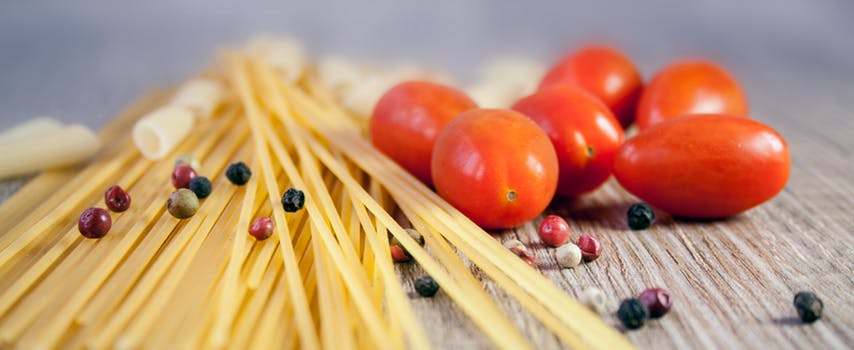
Why We Eat Carbs (From a Biological Perspective not Just Because They Taste Good!)
To understand the importance of carbs let’s have a brief look at the main roles the three energy yielding macros (carbs, fat and protein) play in maintaining our health. (For more detailed information on carbs and the macronutrients click this link to go to my earlier post “What is Healthy Eating Anyway”)
Carbs: Of the 3 macros carbs are your body’s preferred fuel source. The main role of dietary carbohydrates after they are broken down in your digestive systems to release glucose (sugar) is to supply this fuel to your muscles and brain. What is not immediately used to fuel your body and maintain your blood glucose levels (BGLs) is stored within your liver and muscles in the form of glycogen. These stores can then be released to into your blood to maintain BGLs and therefore ensure a steady supply of energy to your organs in times between eating. For example, during your overnight fast your glycogen stores can drop by two thirds1 as it is used up in maintaining your BGLs, fuelling your brain and other metabolic activity while you sleep.
Fat: Fat has numerous crucial roles within your body including healthy brain function, hormone production and temperature regulation. It is also a backup fuel source because in comparison to our limited ability to store glucose our bodies are great at storing fat. As an energy source fat is only partially broken down and the products, called ketones or ketone bodies (hence the origins of the name for the keto diet) are mildly acidic and if they build up in our blood can over time have the potential to cause harm. In a 2006 study longer-term adherence to a low carb diet (greater than three years) showed side effects including retarded growth, kidney stones and bone fractures amongst children treated for intractable epilepsy with low carb diets and these side effects were thought to be due to the acidity created by the ketones2.
Protein: The main role of protein is structural (muscle and other cells) and our bodies aren’t designed to store it at all as a fuel source3 therefore any use of this macro as a fuel will impair our ability to build and maintain muscle and other cells and as such will compromise our performance.
What Is a Low Carb Diet?

Low carb is an ambiguous phrase and encompasses a range of carbohydrate intakes but in general a low carb diet is taken to mean a diet in which no more than 20-60g of carbohydrate are eaten in any one day. The Atkins, Paleo and Ketogenic (Keto) diets are all examples of low carb diets which exchange a large percentage of dietary carbohydrate for fat and/or protein. As we spoke about above the general population eats between 150-250g carbs per day, so you can see this is a substantial decrease.
Why Do People Go on a Low Carb Diet?

The Keto diet began as a possible treatment for children with epilepsy that was unresponsive to other treatment (intractable epilepsy)4-7 and variations of this diet were made including the Atkins diet to increases the palatability8 and therefore adherence. Keto diets are now being investigated for the treatment of a range of diseases including Alzheimer’s disease9-11 traumatic brain injury12 and cancer13. However, the main reason healthy people chose to go on low carb diets is the allure of short-term weight loss14-17 or the belief that carbs are unhealthy.
Examples of Carbohydrate Foods
Foods People Often Associate with Carbs:
- Sugar
- Cake
- Lollies (sweets)
- Soft drinks (soda)
- Bread, pizza and pasta
- Bananas and potatoes
Common Foods Which Naturally Contain Carbs:
- Grains (eg. rice, oats, quinoa, wheat)
- Fruits
- Vegetables (eg. sweet potato, corn)
- Milk and yoghurt
- Nuts and seeds
- Legumes (beans, lentils, peas)
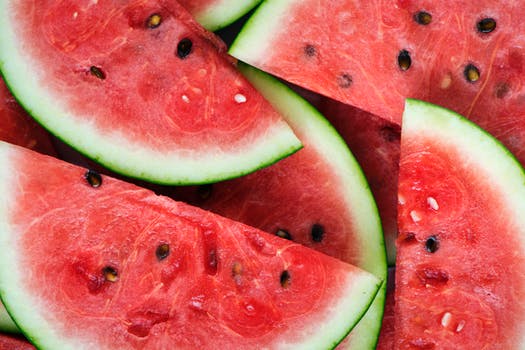



Nutritional Implications of Cutting Carbs:
If your carb intake is coming predominantly from the top of the list on the left there is likely room for you to get support in creating and following a healthier eating style. At the end of the day carbohydrates (including sugars) are a normal part of our diets and not a problem unless they are eaten in excess and displacing your intake of other healthful nutrients.
You can see from the list of foods on the right that the variety of foods which naturally contain carbs is extensive and because all these foods contain other vital nutrients and non-nutrient compounds including vitamins, minerals, fibre and antioxidants this means that by restricting your intake of carbs you also increase the potential that you will be limiting your intake of these other health-promoting substances.
Vitamins and Minerals
Wholegrains (rolled oats, wholegrain bread, quinoa, brown rice) are great sources of essential fatty acids, B vitamins, folate, vitamin E, Zinc and Magnesium. Fruit, vegetables, nuts and seeds are high in vitamins including vitamin C and A and minerals including Magnesium and Potassium. Milk and dairy are good sources of protein, riboflavin and calcium.

Fibre
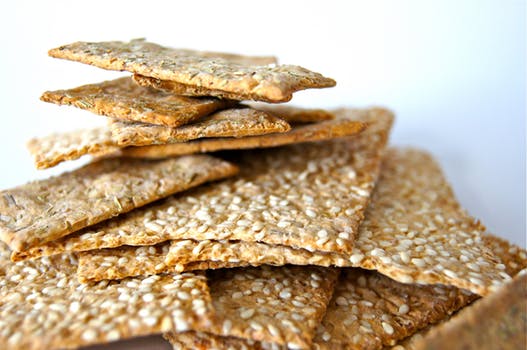
Plant foods are your only source of dietary fibre. Pure protein (meat) and fat (oil, butter) do not contain fibre. Fibre is well known for its assistance with bowel movements however it has many other beneficial functions in the body including providing a substrate and food source for healthy gut bacteria, regulating inflammation in the body which reduces risk of numerous diseases including anxiety and depression, reducing risk of high cholesterol, heart disease, diabetes, hernia, haemorrhoids, bowel cancer and gallstones.
Antioxidants
Carbohydrate containing foods such as grains, fruit, vegetables, nuts and seeds are your major source of dietary antioxidants. Antioxidants are compounds, including vitamins (for example vitamin E and C) and minerals (for example selenium, manganese and copper) as well as other non-nutritive substances (for example polyphenols, flavonoids, anthocyanins, xanthophylls and carotenes) well known for their important role in protecting your body against the harms of every day chemical reactions and therefore reducing your risk of developing diseases such as cancer, heart disease, eye cataracts and rheumatoid arthritis.

Will Eating Carbs Make Me Fat?

No.
I hope after reading the above information you reached this conclusion on your own but there is a lot of misunderstanding when it comes to carbs and I get asked this question often in practice therefore I think it’s valuable to dive into it a little deeper.
In everyday life your body uses a mix of both carbohydrates and fat to supply your energy needs and your body adapts to eating more or less carbohydrates by increasing or decreasing the proportion of carbohydrate to fat you burn as a fuel source respectively18-22. That is when you eat more carbohydrate you burn more carbohydrate. You only begin to convert carbohydrate to fat when your liver and muscle stores are full and your body’s ability to burn and store glucose is exceeded. For most people, in the context of a healthy diet the amount of carbohydrate that you can eat from wholefoods (fruit, wholegrains, vegetables) is unlikely to be beyond this because it is limited by the bulk (filling) and satiety of these types of foods23,24. Furthermore, there is evidence that the carbohydrate component of a meal confers a large contribution to the feeling of satiety25 and therefore carbs have an important role in letting us know when to stop eating. Which means that if this need isn’t met (that is the meal doesn’t contain carbs in a high enough amount to let our brain know we’ve had enough), we will continue to eat waiting for this feeling and possibly over eat25. Therefore, from this point of view a low carbohydrate diet may actually increase fat deposition and weight gain in the long term26.
What the Evidence Says

The best scientific evidence we currently have available points to diets in which the energy supplied by carbs is low (less than 40% of daily energy intake coming from carbs) or high (greater than 70% of daily energy intake coming from cabs) as having an increased risk of mortality27. In comparison diets which provide a moderate carb intake (supplying 50-55% of total daily energy intake) are associated with decreased risk of mortality27.
With this in mind the current United Kingdom Dietary Guidelines recommend an intake of around 50%28 and the Australian Dietary Guidelines recommend between 45-65%29 of our daily energy should come from carbohydrate sources. What is important here is the type of carbs both these recommendations are based on this carb intake coming predominantly from wholefoods such as wholegrains, milk, fruit and vegetables.
Summary
1. We are designed to eat carbohydrates.
- Carbohydrates are your bodies first and preferred choice of fuel.
- Your body can adapt to eating a low carb diet, but this doesn’t mean it is at your best health interests to do so.


2. Carbohydrate foods contain numerous beneficial nutrients and non-nutritive substances including vitamins, minerals, fibre and antioxidants.
- Vitamins and minerals are vital to all body processes.
- Fibre has been shown to amongst other things keep us regular, feed our healthy gut bacteria, decrease our risk of colon cancer and other diseases associated with inflammation (including depression).
- Antioxidants help protect our bodies from damage that has the potential to lead to diseases including cancer.
3. Eating carbs will not make you fat.
- Naturally occurring carbs are bulky and filling which means you’re unlikely to overconsume.
- Your body adapts to meet your carb intake, that is it increases or decreases your use of this fuel when you eat more or less carbs respectively.
- Carbs play a role in satiety, that is eating carbs helps you to gauge when you have eaten enough and therefore when to stop.
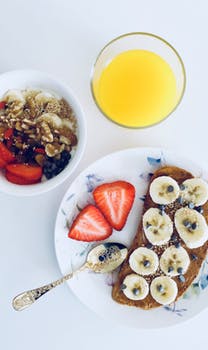

4. The Evidence Supports:
- A moderate carbohydrate intake where approximately half of your total daily energy intake comes from carbohydrate sources (predominantly wholefoods including fruit, vegetables, wholegrains, milk, nuts and seeds) is associated with decrease risk of all-cause mortality.
In conclusion the best advice we currently have is in favour of keeping carbs in your diet. This is likely due to the health benefits of the vast array of other nutrient and non-nutrient compounds carbohydrate foods contain, higher dietary variety and intake of fruit and vegetables.
If you have specific questions or concerns, are interested in learning more please leave a comment below or get in contact with me today (click this link for contact details) and let’s start working together to create the best plan for YOU to ensure YOU reach the outcomes YOU want.
With my whole heart I hope you found this information useful and inspiring.

Become Great. Live Great.
Bonnie.
Reference
- Glenn Cardwell. Gold Medal Nutrition. Fifth Edition. Sports Dietitians Australia. Human Kinetics. 57A Price Avenue. Lower Mitcham, South Australia.
- K. Groesbeck, R.M. Bluml, E.H. KossoffLong-term use of the ketogenic diet in the treatment of epilepsy. Dev. Med. Child Neurol. 2006. 48;978-981.
- Melzer K. Carbohydrate and fat utilization during rest and physical activity. European e-Journal of Clinical Nutrition and Metabolism. April 2011. 6:(2);e45 – e52.
- The effects of ketonemia on the course of epilepsy. Mayo Clin. Proc. 1921:2;307–308.
- Janigro D. Blood-brain barrier, ion homeostatis and epilepsy: possible implications towards the understanding of ketogenic diet mechanisms. Epilepsy Res. 1999:37:223–232.
- Nei M, Ngo L, Sirven JI, Sperling MR. Ketogenic diet in adolescents and adults with epilepsy. Seizure. 2014:23;439–442.
- Van der Louw EJTM, Williams TJ, Henry-Barron BJ, Olieman JF, Duvekot JJ, Vermeulen MJ, Bannink N, Williams M, Neuteboom RF, Kossoff EH, Catsman-Berrevoets CE, Cervenka MC. Ketogenic diet therapy for epilepsy during pregnancy: a case series. Seizure. 2017:455;198–201.
- Martin, K., Jackson, C.F., Levy, R.G., Cooper, P.N., 2016. Ketogenic diet and other dietary treatments for epilepsy. Cochrane Database Syst. Rev. 2016.
- Smith SL, Heal DJ, Martin KF. KTX 0101: a potential metabolic approach to cytoprotection in major surgery and neurological disorders. CNS Drug Rev. 2005. 11, 113–140.
- Henderson ST. Ketone bodies as a therapeutic for Alzheimer’s disease. Neurotherapeutics. 2008:5;470–480.
- Vanitallie TB. Biomarkers, ketone bodies, and the prevention of Alzheimer’s disease. Metabolism. 2015. 64;S51–S57.
- Prins ML, Matsumoto JH. The collective therapeutic potential of cerebral ketone metabolism in traumatic brain injury. J. Lipid Res. 2014:55;2450–2457.
- Jaworski DM, Namboodiri AMA, Moffett JR. Acetate as a metabolic and epigenetic modifier of cancer therapy. J. Cell. Biochem. 2016. 117, 574–588.
- Nordmann AJ, Nordmann A, Briel M, et al. Effects of low-carbohydrate vs low-fat diets on weight loss and cardiovascular risk factors: a meta-analysis of randomized controlled trials. Arch Intern Med. 2006:166;285-293.
- Bazzano LA, Hu T, Reynolds K, Yao L, Bunol C, Liu Y, Chen CS, Klag MJ, Whelton PK, and He J. Effects of Low-Carbohydrate and Low-Fat Diets. A Randomized Trial. Annals of Internal Medicine. 2 September 2014:161;309-318.
- Naude CE, Schoonees A, Senekal M, Young T, Garner P, Volmink J. Low carbohydrate versus isoenergetic balanced diets for reducing weight and cardiovascular risk: a systematic review and meta-analysis. PLoS One. 2014:9; e100652
- Shai I, Schwarzfuchs D, Henkin Y, et al.Weight loss with a low-carbohydrate, Mediterranean, or low-fat diet. N Engl J Med. 2008:359;229-241
- Diraison F, Yankah V, Letexier D, Dusserre E, Jones P, Beylot M. Differences in the regulation of adipose tissue and liver lipogenesis by carbohydrates in humans. J. Lipid Res. 2003:44;846–853.
- Hudgins LC, Baday A, Hellerstein MK, Parker TS, Levine DM, Seidman CE, Neese RA, Tremaroli JD, Hirsch J. The effect of dietary carbohydrate on genes for fatty acid synthase and inflammatory cytokines in adipose tissues from lean and obese subjects. J. Nutr. Biochem. 2008:19;237–245.
- Parks EJ, Krauss RM, Christiansen MP, Neese RA, Hellerstein MK. Effects of a low-fat, high-carbohydrate diet on VLDL-triglyceride assembly, production, and clearance. J. Clin. Invest. 104, 1087–1096 (1999).
- Schwarz JM, Neese RA, Turner S, Dare D, Hellerstein MK. Short-term alterations in carbohydrate energy intake in humans. Striking effects on hepatic glucose production, de novo lipogenesis, lipolysis, and whole-body fuel selection. J. Clin. Invest. 1995:96;2735–2743.
- Westerterp KR. Food quotient, respiratory quotient, and energy balance. Am J Clin Nutr. 1993:57;759S-764S.
- 38Acheson KJ, Schutz Y, Bessard T, Anantharaman K., Flatt JP, and Jequier E. Glycogen storage capacity and de novo lipogenesis during massive carbohydrate overfeeding in man. Am J Clin Nutr. 1988;48:240–247.
- Jequier E. and Schutz Y. Long-term measurements of energy expenditure in humans using a respiration chamber. Am J Clin Nutr. 1983;38:989–998.
- Tremblay A., Plourde G, Despres, JP, and Bouchard, C. Impact of dietary fat content and fat oxidation on energy intake in humans. Am J Clin Nutr. 1989;49:799–805.
- Astrup A. Dietary management of obesity. JPEN J Parenter Enteral Nutr. 2008;32:575–577.
- Seidelmann SB, Claggett B, Cheng S, Henglin M, Shah A, Steffen LM, Folsom AR, Rimm BE, Willett WC, Solomon SD. Dietary carbohydrate intake and mortality: a prospective cohort study and meta-analysis. The Lancet Public Health. Sept 2018:3(9);e419-e428.
- Carbohydrates and Health. Science Advisory Committee on Nutrition. 2015. London TSO. [Online]. Available from: tsoshop.co.uk.
- Nutrient Reference Values Australia for New Zealand. 2017. [Online]. Available from: https://www.nrv.gov.au/chronic-disease/summary.
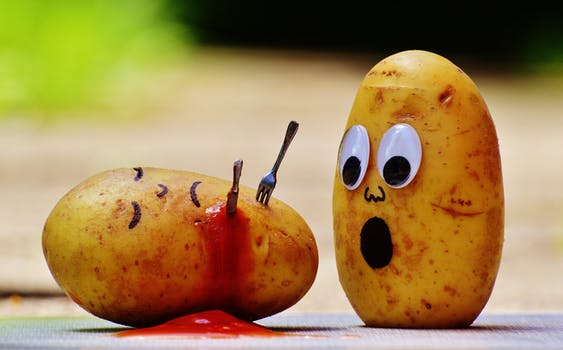



6 thoughts on “Are Carbs Bad for You?”
Hello there! Do you know if they make any plugins to help with SEO? I’m trying to get my blog to rank for some targeted keywords but I’m not seeing very good results. If you know of any please share. Thank you!
Hi Adalberto,
I appreciate your question I don’t have a lot of knowledge on this area yet however I am learning. Do you have Yoast SEO? This plugin helps with targeting keywords 🙂
Warmly,
Bon
You put forward some interesting points within this post, but are you overlooking something crucial?|
Maybe not something “crucial” but I am certain there are points I could have elaborated on and there’s always more you can include when writing about the health benefits of eating carbs 🙂 Thanks for your comment.
I?m impressed, I must say. Really rarely do I encounter a blog that?s both educative and entertaining, and let me tell you, you have hit the nail on the head. Your idea is outstanding; the issue is something that not enough people are speaking intelligently about. I am very happy that I stumbled across this in my search for something relating to this.
Hi Vincent,
Thank you very much for taking the time to leave feedback. I am very happy to know that you found the information in this post educational and useful as well as interesting and entertaining to read at the same time. I completely recognise that nutrition can be a very tough area to find as you say ‘intelligent information’ on because there are a great deal of opinions being shared as fact, often unknowingly and without the intention of harm by the people doing it. It is for this reason that I created this blog in order to achieve exactly what you have described and that is to provide you with information that is scientifically based, applicable to life and written for easy and entertaining reading. I am very happy that you came across my website also because now I can be assured that you have access to high quality nutrition information to make your own informed choices which is a wonderful feeling for me. If you have any topics in particular that you have an interest in or would like to see covered in my blog please don’t hesitate to contact me and let me know 🙂